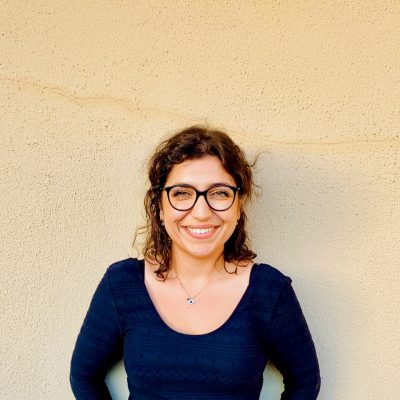Life in Quarantine: Witnessing Global Pandemic is an initiative sponsored by the Poetic Media Lab and the Center for Spatial and Textual Analysis at Stanford University.

Farah Bazzi

Farah is a third year Ph.D. candidate in History at Stanford University. Farah studies early modern global history, with a focus on understanding the historical connections between the Mediterranean and the Atlantic maritime spaces during the sixteenth and seventeenth century. Farah’s research focuses primarily on how histories of conquest, race, and the environment intersect in the regions of Ottoman North Africa, Morocco, and the Iberian Empires in the early modern period. Besides her academic work, Farah also writes poetry in Dutch. When she is not behind her desk, Farah takes great pleasure in cooking and running.
Farah holds a BA in Political Science, a BA and MA in Middle East Studies from Leiden University, and an MA in History from the University of Chicago.
Using the LiQ Archive to Teach History
Teaching history has always revolved around making sense of the present moment through an active engagement with the past. One of the important lessons that students learn while ‘doing’ and learning about history is that it is an active and continuous process. Making students aware of the fact that they are active agents in both the process of making history as well as writing history might be a difficult task for instructors. However, it is crucial for students to understand that these two acts are intertwined. We cannot separate our understanding of the past from our own ability to comprehend the ‘current’ historical moment.
In a world that has become increasingly interconnected, mobile, and marked by the internet, designers of national history curricula will have to create a balance between a ‘nationalist’ as well as ‘global’ perspective on history. Although people, ideas, processes, and institutions have always been interconnected beyond the borders of the nation-state, the global pandemic has created an example as well as opportunity to discuss how our lives around the world have become increasingly interdependent.
LIQ creates a space for teachers and students to learn more about the processes of writing and making history in a classroom setting through a discussion on the local and global ramifications of COVID-19. The LIQ archive provides an insight into how narratives around historical events are made and shaped. This awareness will enable students to understand the importance as well the limitations of archives and sources. Moreover, including conversations about the pandemic in the classroom will allow us to ‘normalize’ it without running the risk of downplaying the ramifications or prioritizing a singular experience or discourse.
Our Sponsors and Partners
Previous
Next
Find Us!
Center for Spatial and Textual Analysis (CESTA),
Stanford University
Address:
4th floor, Wallenberg Hall (bldg. 160)
450 Jane Stanford Way
Stanford, CA 94305
Stanford Mail Code: 2055
